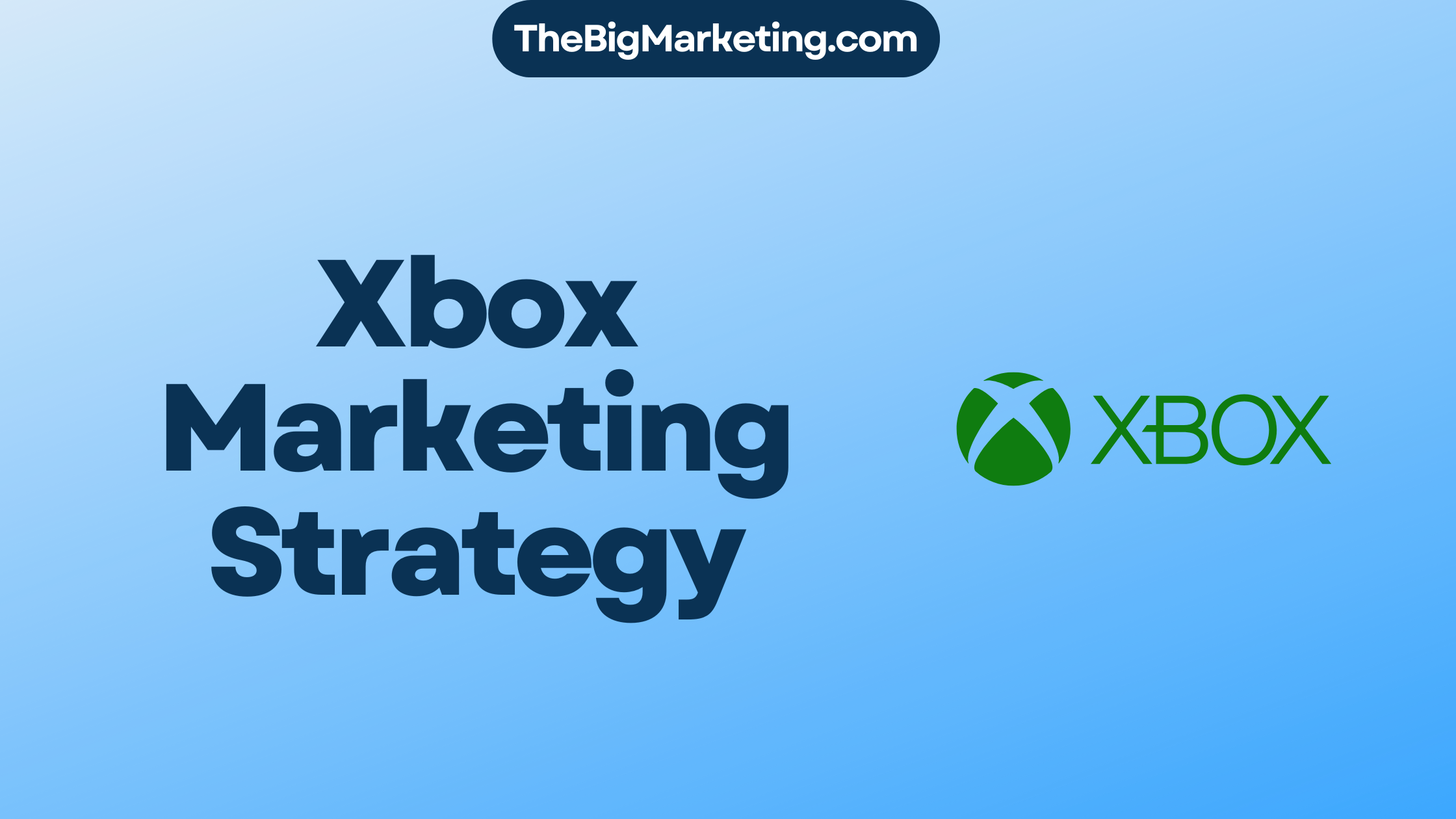In recent years, Hobby Lobby has implemented a successful marketing strategy to captivate its creative audience in the craft industry. By utilizing various techniques and campaigns, the company has positioned itself as a leader in the arts and crafts market. This case study explores the key elements of Hobby Lobby’s marketing strategy and how it has evolved for the year 2024.
Key Takeaways:
- Hobby Lobby’s marketing strategy has positioned the company as a leader in the craft industry
- Integration of religious values into brand identity has cultivated a loyal customer base
- Online marketing and social media engagement are essential for reaching target audience
- Creating an immersive in-store experience enhances customer satisfaction
- Hobby Lobby’s commitment to sustainability and corporate social responsibility helps enhance brand reputation
Building Brand Identity through Religious Values
One of the defining aspects of Hobby Lobby’s marketing strategy is its integration of religious values into its brand identity. The company, led by conservative Christian founder and CEO David Green, has made a commitment to operate the company in a manner consistent with Biblical principles. This commitment is reflected in their marketing campaigns, which often highlight the company’s faith-based approach to business. By incorporating religious values into their brand, Hobby Lobby has cultivated a loyal customer base that resonates with their message.
Faith and Purpose-Driven Marketing
Hobby Lobby takes a unique approach to brand promotion by aligning their marketing efforts with their religious beliefs. Through various creative marketing campaigns, they effectively communicate their core values to their target audience. By doing so, they attract customers who share similar beliefs and create a sense of community among their loyal following.
Examples of Hobby Lobby’s Creative Marketing
- “Inspiring Faith”: Hobby Lobby often utilizes their marketing channels to share inspiring stories and testimonials from customers who have found faith and purpose through their crafts. These heartwarming narratives resonate with their target audience and reinforce the company’s religious brand identity.
- Inclusive Marketing: Hobby Lobby’s commitment to religious values doesn’t alienate customers of different faiths. They embrace diversity by creating inclusive marketing campaigns that promote creativity and self-expression without compromising their core beliefs.
- Philanthropic Partnerships: The company collaborates with non-profit organizations that align with their religious values. By supporting charitable causes and promoting these partnerships in their marketing efforts, Hobby Lobby showcases their commitment to making a positive impact in the community.
Overall, Hobby Lobby’s incorporation of religious values into their brand identity sets them apart in the competitive craft industry. Their faith-driven marketing strategy has been successful in building a strong brand reputation and connecting with a dedicated customer base.
| Benefits of Hobby Lobby’s Brand Promotion Techniques | Challenges Faced |
|---|---|
|
|
Engaging Customers through Online Marketing
In today’s digital age, online marketing has become a vital component of Hobby Lobby’s marketing strategy. The company understands the significance of reaching and engaging their target audience through various online channels. Hobby Lobby has successfully developed a strong online presence by leveraging their website and utilizing popular social media platforms.
To captivate their customers, Hobby Lobby regularly shares valuable and creative content across their online platforms. By providing DIY project tutorials, crafting inspiration, and tips, the company actively encourages customer engagement and participation within the crafting community. These efforts have not only fostered a sense of unity among their online audience but also created a loyal customer base.
The effectiveness of their online marketing strategy lies in the interactivity and value they provide to their customers. Hobby Lobby’s content allows their audience to learn new skills, explore creative ideas, and connect with fellow craft enthusiasts. This engagement fosters a strong sense of community, encouraging customers to further interact with the brand and, ultimately, become loyal advocates.
Through online marketing, Hobby Lobby has successfully established itself as a leading authority in the crafting industry. By understanding their target audience’s preferences and needs, the company can deliver personalized and relevant content that resonates with their customers’ passion for creativity and artistry.
To visually represent Hobby Lobby’s online marketing efforts, here is an image showcasing their engaging social media posts:
Leveraging Social Media for Craft Store Marketing
Social media has become an integral part of Hobby Lobby’s marketing strategy, allowing the company to reach and engage their target audience effectively. By actively maintaining a presence on popular platforms such as Instagram, Facebook, and Pinterest, Hobby Lobby showcases its diverse range of products, shares craft ideas, and interacts with its followers. This strategic use of social media has proven to be a powerful tool for generating brand awareness and driving engagement.
With visually appealing content and engaging captions, Hobby Lobby captivates craft enthusiasts on social media and positions itself as a go-to source of inspiration. By consistently providing valuable and shareable content, the company encourages its audience to participate in a virtual crafting community and share their own creations. This level of customer engagement not only strengthens the brand’s relationship with its customers but also expands its reach to potential new customers who discover the brand through social media.
Moreover, social media platforms provide valuable insights into customer preferences and trends, enabling Hobby Lobby to refine its marketing strategy and adapt to changing market demands. By analyzing engagement metrics, such as likes, comments, and shares, the company gains valuable feedback and identifies popular products and craft trends. It then uses this information to tailor its marketing campaigns and further enhance customer satisfaction.
Additionally, social media offers a platform for direct communication and customer support. Hobby Lobby promptly responds to customer inquiries, addresses concerns, and provides assistance, creating a positive brand image and building trust with its audience.
Creating an In-Store Experience
Hobby Lobby understands the importance of creating an immersive and memorable in-store experience for its customers. The company designs its stores to be visually appealing and organized, with carefully curated displays that inspire creativity. They also offer workshops and classes to educate and engage customers on various crafting techniques. By providing a welcoming and interactive environment, Hobby Lobby entices customers to spend more time in the store and explore their vast range of products.
Immersive Visual Displays
Hobby Lobby takes great care in designing their stores to captivate and inspire creativity in their customers. From the moment shoppers step inside, they are greeted with thoughtfully arranged displays that showcase their wide selection of products. Every aisle and section is meticulously organized, making it easy for customers to find what they need and discover new items. By creating visually appealing displays, Hobby Lobby elevates the shopping experience and encourages customers to explore their passion for crafting.
Workshops and Classes
As a testament to their commitment to customer engagement and education, Hobby Lobby offers workshops and classes for both beginners and experienced crafters. These sessions cover a variety of crafting techniques, from painting to sewing to jewelry making. By providing opportunities for customers to learn and expand their skills, Hobby Lobby not only fosters a sense of community but also establishes themselves as a trusted resource in the hobby industry. These workshops and classes also serve as a platform for customers to connect with like-minded individuals and share their love for crafting.
An Interactive Shopping Environment
In addition to the visually appealing displays and educational workshops, Hobby Lobby aims to create an interactive shopping environment that encourages customers to engage with their products and unleash their creativity. They strategically position crafting stations throughout the store where customers can test out materials, experiment with different techniques, and get hands-on experience. By providing these interactive opportunities, Hobby Lobby enhances the overall shopping experience and makes it more enjoyable and fulfilling for their customers.
Through their dedication to creating an in-store experience that engages and inspires, Hobby Lobby sets themselves apart in the competitive retail market. They understand that the hobby industry is driven by passion and creativity, and they strive to cultivate those sentiments within their customers. Whether it’s through their visually appealing displays, educational workshops, or interactive shopping environment, Hobby Lobby’s commitment to customer engagement is evident at every turn.
Navigating Controversies and Public Perception
Hobby Lobby, like any prominent organization, has encountered its fair share of controversies that have tested its marketing strategy and brand reputation. From legal battles surrounding contraceptive coverage to allegations of discrimination, the company has faced public scrutiny that could have potentially tarnished its image.
However, Hobby Lobby has effectively navigated these challenges by employing strategic communication and crisis management tactics. The company has prioritized transparency and proactiveness in addressing concerns, offering apologies when necessary, and demonstrating its commitment to diversity and inclusion.
By swiftly responding to controversies and showcasing genuine efforts to rectify any missteps, Hobby Lobby has been able to maintain a positive public perception. This commitment to responsible brand management has allowed the company to preserve consumer trust and loyalty, even in the face of adversity.
Addressing Controversial Issues Head-On
When controversies arise, Hobby Lobby understands the importance of acknowledging the issues and addressing them directly. The company takes a proactive approach to communicate their position, clarify any misunderstandings, and offer genuine apologies or explanations when necessary.
Emphasizing Diversity and Inclusion
To counter allegations of discrimination and reinforce a positive public perception, Hobby Lobby continually emphasizes its commitment to diversity and inclusion. The company actively promotes an inclusive work environment and supports initiatives that celebrate people from all backgrounds.
Advocating for Responsible Business Practices
Hobby Lobby understands the significance of ethical and responsible business practices. The company has taken steps to showcase its commitment to social and environmental sustainability, further enhancing its brand reputation and mitigating potential controversies.
| Strategies | Impact |
|---|---|
| Transparent communication | Builds trust and fosters positive public perception |
| Inclusive policies and initiatives | Reinforces Hobby Lobby’s commitment to diversity and inclusion |
| Responsible business practices | Enhances brand reputation and mitigates potential controversies |
Embracing Sustainability and Corporate Social Responsibility
Hobby Lobby understands the growing importance of sustainability and corporate social responsibility in the retail industry. As part of their marketing strategy, the company has taken various initiatives to reduce their environmental impact and contribute to their surrounding communities.
Eco-Friendly Packaging: Hobby Lobby is committed to using eco-friendly packaging materials. By opting for sustainable packaging solutions, they minimize waste and reduce their carbon footprint. This environmentally conscious approach not only aligns with their corporate values but also resonates with consumers who prioritize sustainability.
Promoting Recycling: In addition to eco-friendly packaging, Hobby Lobby actively promotes recycling in their stores. They place recycling bins strategically throughout their locations, encouraging customers to dispose of waste responsibly. This initiative not only reduces landfill waste but also educates and inspires customers to adopt sustainable practices in their own lives.
Supporting Charitable Organizations: Hobby Lobby takes pride in supporting charitable organizations and community initiatives. Through financial contributions and partnerships, they actively give back to the communities they serve. By aligning themselves with causes that resonate with their target audience, they enhance their brand reputation and foster goodwill among consumers.
Enhancing Brand Reputation: By embracing sustainability and corporate social responsibility, Hobby Lobby appeals to socially conscious consumers. This commitment demonstrates their genuine concern for the environment and the well-being of the community. Customers who prioritize sustainability are more likely to choose a brand that aligns with their values, giving Hobby Lobby a competitive advantage in the market.
In summary, Hobby Lobby’s integration of sustainability and corporate social responsibility into their marketing strategy showcases their commitment to making a positive impact beyond their product offerings. By implementing eco-friendly practices, supporting charitable initiatives, and emphasizing their commitment to the environment, Hobby Lobby appeals to socially conscious consumers and enhances their brand reputation.
| Benefits of Embracing Sustainability and Corporate Social Responsibility | Examples |
|---|---|
| Enhanced brand reputation | Supporting sustainable initiatives |
| Appealing to socially conscious consumers | Using eco-friendly packaging materials |
| Competitive advantage | Promoting recycling in stores |
| Positive community impact | Supporting charitable organizations |
Personalized Marketing and Targeted Advertising
Hobby Lobby understands the importance of tailored marketing strategies to effectively engage their specific audience. Through data analysis and customer segmentation, Hobby Lobby creates personalized marketing campaigns that resonate with the interests, preferences, and demographic characteristics of their target customers. This targeted approach allows them to deliver relevant and compelling content, driving higher levels of engagement and increasing the likelihood of conversion.
To ensure the success of their personalized marketing and targeted advertising efforts, Hobby Lobby employs various strategies:
1. Customer Data Analysis
Hobby Lobby utilizes advanced data analysis techniques to gain valuable insights into their customers’ behaviors and preferences. By analyzing customer data, such as purchase history, browsing patterns, and demographic information, they can identify trends, preferences, and opportunities for targeted marketing campaigns.
2. Segmentation
Based on the insights derived from customer data analysis, Hobby Lobby segments their target audience into distinct groups or segments. Each segment has unique characteristics, enabling Hobby Lobby to tailor their marketing messages and offers specifically to the needs and interests of each segment.
3. Personalized Content Creation
With a deep understanding of their customer segments, Hobby Lobby creates personalized content that speaks directly to the interests and preferences of each segment. Whether it’s through customized email campaigns, personalized product recommendations, or targeted social media ads, Hobby Lobby ensures that every interaction with their customers is relevant and engaging.
4. A/B Testing
Hobby Lobby continually monitors and optimizes their marketing campaigns through A/B testing. By comparing the performance of different variations of their content, such as subject lines, images, or calls to action, they can identify the most effective messaging and design elements for each customer segment.
5. Dynamic Remarketing
Hobby Lobby leverages dynamic remarketing techniques to re-engage customers who have previously shown interest in their products. By displaying personalized ads with relevant product recommendations to these potential customers, Hobby Lobby increases the chances of conversion and encourages repeat purchases.
Overall, Hobby Lobby’s personalized marketing and targeted advertising approach allows them to create meaningful connections with their customers. By delivering content that resonates with their specific interests and needs, Hobby Lobby positions itself as a trusted and preferred destination for arts and crafts enthusiasts.
Embracing Omnichannel Marketing
Hobby Lobby understands the importance of providing a seamless and integrated customer experience. To achieve this, the company has embraced omnichannel marketing as a key component of its marketing strategy. By integrating their online and offline channels, Hobby Lobby has created a cohesive brand presence that ensures consistency and convenience for their customers, enhancing their overall shopping experience.
Customers can easily transition from browsing products online to making purchases in-store or vice versa, allowing them to engage with Hobby Lobby wherever and whenever they choose. This omnichannel approach not only maximizes customer convenience but also enables Hobby Lobby to reach and engage with their target audience through multiple touchpoints.
With a strong online presence and an extensive network of physical stores, Hobby Lobby leverages the power of omnichannel marketing to provide a seamless shopping journey. Whether customers prefer to shop from the comfort of their homes or enjoy the sensory experience of browsing the aisles in-store, Hobby Lobby ensures that their brand remains accessible and consistent across all touchpoints.
Benefits of Omnichannel Marketing
Hobby Lobby’s embrace of omnichannel marketing offers several benefits for both the company and its customers. Firstly, it allows customers to have a more personalized and tailored shopping experience. By integrating their online and offline channels, Hobby Lobby can collect data and insights on customer preferences and behaviors, enabling them to offer personalized recommendations and targeted promotions. This level of personalization enhances customer engagement and increases the likelihood of conversion.
Additionally, omnichannel marketing enables Hobby Lobby to create a cohesive brand experience across all channels. Customers can easily recognize and interact with Hobby Lobby’s brand, regardless of whether they are browsing the website, visiting a physical store, or engaging with the brand through social media. This consistency strengthens brand loyalty and fosters a sense of trust and familiarity with customers.
The integration of online and offline channels also provides a significant opportunity for Hobby Lobby to drive customer engagement. By leveraging the power of digital and physical touchpoints, Hobby Lobby can create interactive and immersive experiences for customers. For example, customers can explore the full range of products on the website, read customer reviews, and then visit a physical store to experience the products firsthand. This multichannel approach encourages customers to actively engage with the brand at various stages of their customer journey.
In summary, Hobby Lobby’s embrace of omnichannel marketing illustrates their commitment to providing a seamless and integrated customer experience. By integrating their online and offline channels, Hobby Lobby ensures consistency and convenience for their customers, while also leveraging the power of data analytics and personalization to enhance customer engagement and drive conversions.
Conclusion
Hobby Lobby’s marketing strategy demonstrates the power of creativity, a strong brand identity, and effective customer engagement in the competitive retail industry. By incorporating religious values into their messaging, leveraging online and social media platforms, creating immersive in-store experiences, addressing controversies transparently, and prioritizing sustainability, Hobby Lobby has cemented its position as a leader in the craft industry.
The company’s strategic marketing approach has allowed them to stay relevant in a rapidly evolving market and effectively connect with their creative audience. The integration of religious values into their brand has resonated with their target customers, fostering loyalty and a sense of community.
Additionally, Hobby Lobby’s online presence and active engagement on social media platforms have enabled them to showcase their products, inspire their followers, and generate brand awareness. Their visually appealing content and interactive approach have made them a go-to source of inspiration for craft enthusiasts.
Furthermore, Hobby Lobby’s commitment to creating a memorable in-store experience and embracing sustainability and corporate social responsibility has enhanced their brand reputation and attracted socially conscious consumers. By personalizing their marketing efforts and embracing omnichannel strategies, the company has successfully targeted their audience and provided a seamless shopping experience.
FAQ
What is Hobby Lobby’s marketing strategy?
Hobby Lobby’s marketing strategy involves integrating religious values into their brand identity, leveraging online and social media marketing, creating immersive in-store experiences, addressing controversies with transparency, and prioritizing sustainability and corporate social responsibility.
How does Hobby Lobby incorporate religious values into its marketing?
Hobby Lobby incorporates religious values into its marketing by highlighting their faith-based approach to business and operating the company in line with Biblical principles.
How does Hobby Lobby engage customers through online marketing?
Hobby Lobby engages customers through online marketing by sharing creative content, such as DIY project tutorials and inspiration, on their website and social media platforms. They also foster a sense of community and loyalty among their online audience.
Which social media platforms does Hobby Lobby use for marketing?
Hobby Lobby maintains a presence on popular social media platforms like Instagram, Facebook, and Pinterest, where they showcase their products, share craft ideas, and interact with their followers.
How does Hobby Lobby create an immersive in-store experience?
Hobby Lobby creates an immersive in-store experience by designing visually appealing and organized stores with carefully curated displays that inspire creativity. They also offer workshops and classes to educate and engage customers on various crafting techniques.
How does Hobby Lobby manage controversies and public perception?
Hobby Lobby manages controversies and public perception through strategic communication and crisis management. They are transparent and proactive in addressing concerns, offering apologies when necessary, and showcasing their commitment to diversity and inclusion.
How does Hobby Lobby embrace sustainability and corporate social responsibility?
Hobby Lobby embraces sustainability and corporate social responsibility by implementing initiatives to reduce their environmental impact, using eco-friendly packaging materials, promoting recycling in their stores, and supporting charitable organizations and community initiatives.
How does Hobby Lobby utilize personalized marketing?
Hobby Lobby utilizes personalized marketing by tailoring their marketing campaigns to resonate with the interests, preferences, and demographic characteristics of their target customers through data analysis and customer segmentation.
What is Hobby Lobby’s approach to omnichannel marketing?
Hobby Lobby embraces omnichannel marketing by integrating their online and offline channels to create a seamless and integrated customer experience. Customers can easily transition from browsing products online to making purchases in-store or vice versa.
What are the key elements of Hobby Lobby’s marketing strategy?
The key elements of Hobby Lobby’s marketing strategy include incorporating religious values into their brand identity, leveraging online and social media marketing, creating immersive in-store experiences, addressing controversies with transparency, prioritizing sustainability and corporate social responsibility, utilizing personalized marketing and targeted advertising, and embracing omnichannel marketing.







